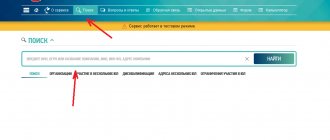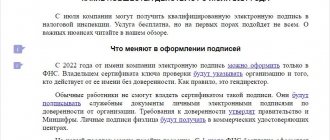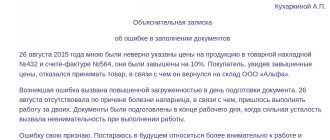Territorial tax inspectorates by city, district (their tasks, functions, structure).
The primary territorial tax authorities are the inspectorates of the Federal Tax Service (IFTS of Russia) for the district, district in the city and city without district division. They are entrusted with the tasks of direct work with taxpayers in the territory they administer.
Inspections of the Federal Tax Service of Russia for a district, district in a city, city without district division are directly subordinate to the Office of the Federal Tax Service of Russia for a constituent entity of the Russian Federation and are controlled by it. The inspection is headed by a director appointed to the position by order of the Federal Tax Service of Russia. The structure of the inspection is approved by the Department of the Federal Tax Service of Russia.
The head establishes the structure of the inspection, which he then submits for approval to the Office of the Federal Tax Service of Russia for the constituent entity of the Russian Federation. A feature of the internal structure of inspections is their construction on a functional principle. Its structure is approved on the basis of the standard one.
In 2002, the standard structure of the inspection was approved for a district, a district in a city and a city without district division. It establishes the mandatory allocation of the following blocks:
Ø work with taxpayers;
Ø test work;
Ø information and analytical work;
Ø general provision.
First block
provides for the creation of departments: taxpayer accounting; receiving tax reports; informing taxpayers.
To the second block
departments included:
a) control of taxation of individuals (including subdivisions: taxation of income of individuals, unified social tax, local and other taxes on individuals; on-site inspections);
b) taxation of legal entities (including subdepartments: desk audits of legal entities, planning of on-site inspections, inspections of legal entities, debt collection of legal entities);
c) control of the production and turnover of alcohol and tobacco products;
d) the use of cash registers.
Third block
- These are the departments of tax statistics, automation of information systems, data entry, system and technical support.
To the general support departments
relate:
Ø legal;
Ø financial;
Ø work with personnel;
Ø economic;
Ø general (i.e. office).
Their functions include state registration and accounting of legal entities and individuals (taxpayers, fee payers and tax agents). They receive tax returns and other forms of reporting, check their accuracy, and monitor the correctness, completeness and timeliness of taxes (levies) and other obligatory payments being entered into the budget.
The inspectorates keep operational accounting records (for each taxpayer and type of payment) of the amounts of taxes and fees payable and actually received by the budget, collect arrears and carry out other functions based on the rights granted to the tax authorities and assigned responsibilities.
Typical structure of a tax inspectorate, in which internal divisions are formed based on their specialization in specific types of tax work,
i.e.
Functions of the TORM of the Interdistrict Inspectorate of the Federal Tax Service of Russia No. 18 for the Rostov region
The activities of the tax authority are regulated by RF Regulation No. 506 of September 30, 2004:
- control and supervision of compliance with the standards established by Russian law regulating taxes, fees, and insurance premiums;
- conducting unscheduled inspections based on requests and complaints from individuals and legal entities;
- exercising control over currency circulation within the framework of its powers;
- control and supervision of the use of cash register equipment;
- registration of taxpayers: citizens, subjects of economic law, self-employed persons;
- maintaining records of registered organizations, issuing certificates from the Unified State Register (USRLE);
- accreditation of representative offices of foreign economic entities to conduct business within the state (except for credit institutions);
- control over the timely payment of taxes and fees, the correctness of their calculation, which allows filling the state and local budgets;
- supervision over the sale of excisable goods (tobacco products, alcoholic beverages);
- representing the state in bankruptcy proceedings in order to obtain mandatory tax payments and pay off fiscal debt.
Migration Department of the Ministry of Internal Affairs of Russia for the Zernogradsky district
The Federal Tax Service of the Russian Federation carries out the tasks assigned to it both independently and through ter. authorities in Zernograd, in interaction with other representatives of the federal government, extra-budgetary organizations, executive power, local administrations, public organizations in various fields of activity.
TORM of the Interdistrict Inspectorate of the Federal Tax Service of Russia No. 7 for the Krasnoyarsk Territory in the Sayan region - 2433
on a functional principle, became possible as a result of the computerization of tax authorities and the use of other means of informatization.
The standard structure establishes uniform principles and requirements for the organization of the internal structure of the inspection, regardless of its location, eliminates duplication in the work of individual inspectors, and ultimately reduces the workload on one tax inspector, determined by the number of taxpayers. This makes it possible to consolidate inspections and reduce their number. In 2001-2005 inspections with a staff of less than 40, and then less than 70 people were abolished. The combination of small inspections from a number of neighboring districts made it possible to create territorial inspectorates at the interdistrict level.
However, the process of consolidation of tax authorities and their merger led to the fact that in a number of regional centers and cities tax inspectorates were abolished, as a result of which tax inspectorates moved away from taxpayers - in some cases by considerable distances. In order not to deteriorate the quality of service for taxpayers, the order of the Ministry of Taxes of Russia established: if tax inspectorates are located at a significant distance from the location of taxpayers (in the absence of regular daily transport links, at a distance of up to 150 km), then territorially isolated workplaces (TORM) should be created ) in the administrative centers of municipalities.
Their purpose is the work of tax authority officials with taxpayers, informing them about the current tax legislation, providing taxpayers with forms of documents necessary for the calculation and payment of taxes, accepting tax returns, accounting reports, issuing certificates to legal entities and individuals about the status of settlements with the budget for their written statements.
In 2006, there were about 1,200 territorially isolated workplaces (territorial tax offices).
The analysis shows that the functions of “TORM” are limited mainly to accepting applications from taxpayers and issuing them certificates on the status of settlements with the budget and receiving tax reporting. The documents received from the taxpayer are then sent to the tax office of the corresponding district (city). TORM does not conduct desk or field tax audits. Thus, on the most significant issues, taxpayers are forced to contact the tax inspectorates, since it is there that decisions are made based on the results of both desk and field tax audits. The territorial remoteness of the inspectorate from the taxpayer undoubtedly negatively affects the quality of tax administration and delays the implementation of the task of transforming tax authorities not only into a service center for servicing taxpayers, but also into an effective tax control body.
Date added: 2016-11-23; | Copyright infringement
Recommended content:
Related information:
- Bank for International Settlements: functions, operations
- Ticket subject, tasks, goals and methods of ecology
- In space and around a circle of people. Any normative act has territorial and temporal boundaries of its action, and is also addressed to a certain circle of persons
- In accordance with the Budget classification, non-tax revenues include
- Question 1. Essence, functions, tasks and principles of tax management
- Question 16. Territorial losses and gains of Russia in the 17th century.
- Question 3. Taxpayers and tax agents. Tax return.
- Chapter 8. Entrepreneurship: essence, functions, types
- Schedule of assignment of IRNO employees and faculties by regions and cities of the Republic of Tatarstan
- Didactic tasks solved with the help of ICT
- In order to find the correct solution to a problem, imagination is not required, but so
- Problems of minimizing a function specified in analytical form
Search on the site:
5.2.1. TORMs that do not have access to the information resources of the Federal Tax Service of Russia inspection
5.2.1.1. Tax returns, financial statements, other documents serving as the basis for the calculation and payment of taxes, fees and other obligatory payments to the budget system of the Russian Federation (hereinafter referred to as tax reporting), other documents submitted by organizations and individuals (letters, requests, applications, etc. .) on TORM, which do not have access to the information resources of the Federal Tax Service of Russia inspection, are not registered.
Tax reporting received in person from taxpayers (their representatives) on paper is checked for completion of the required details.
Tax reporting received personally from taxpayers (their representatives) on electronic media is checked for the presence of a “virus” and the correctness of filling in the required details.
Correspondence received by mail to TORM, which does not have access to the information resources of the Federal Tax Service of Russia inspection, is not opened. Envelopes and documents submitted by taxpayers in person are transferred according to the register to the inspectorate of the Federal Tax Service of Russia.
At TORM, which do not have access to the information resources of the Federal Tax Service of Russia, all types of documents are accepted (applications for the transition to the system of agricultural producers, to a simplified taxation system, for registration of objects of taxation for the gambling business tax, for offset of tax payments, for the provision of benefits for property taxes, etc.) falling within the competence of the tax authorities.
At TORMs that do not have access to the information resources of the Federal Tax Service of Russia inspection, it is necessary to ensure the sorting of accepted documents by type (tax returns, applications, letters, etc.), the formation of batches and their prompt transfer to the relevant departments of the Federal Tax Service of Russia inspection.
Tax reporting, documents of organizations and individuals (letters, requests, applications, etc.), submitted by taxpayers in person, must be sent to the inspectorate of the Federal Tax Service of Russia in a timely manner, according to the transport schedule, which is recommended to be drawn up taking into account the characteristics of the region.
Concept of the Federal Tax Service of Russia for working with taxpayers
Over the past years, the Federal Tax Service (hereinafter referred to as the Federal Tax Service of Russia) has made a qualitative leap
in its development, primarily in the direction of technological and structural-functional improvement of tax administration. Currently, the level of tax collection and other main results of the department’s activities show stable positive dynamics. The structural and technological foundation has been laid for the formation of a globally competitive tax administration system.
Currently, the Federal Tax Service of Russia places emphasis on the formation of a “service-oriented” approach, however, both in the mass consciousness of taxpayers and among department employees, “client-oriented service” has not become part of the department’s image. To determine new prospects for the development of the Federal Tax Service of Russia in 2011, as part of the first stage of work, a study was conducted, the purpose of which was to identify opportunities for the development of the Federal Tax Service of Russia in the field of social communications
. The study was devoted to finding answers to the questions: “What prevents the improvement of interaction between the Federal Tax Service of Russia and taxpayers? What should be done to improve the efficiency of servicing taxpayers?”
The study revealed that the systemic reason that determines the quality of service to taxpayers is that the Federal Tax Service of Russia, as a socio-technological system, is being modernized with insufficient consideration of social subsystems.
Intensive development of technologies and services occurs without the necessary consideration in such cases of the human factor - employees, taxpayers - and the external environment. It is necessary to adjust the development of the Federal Tax Service of Russia, taking into account the social component of its activities. In general, the existing service to taxpayers is still carried out according to the formula “Long. Difficult. Inconvenient."
This Concept proposes a transition from a technological model of development of the Federal Tax Service of Russia to a socio-technological model
, from serving taxpayers according to the formula “Long. Difficult. Inconvenient" to the formula "Fast. Just. Comfortable. Professionally".
The goal of the Concept of the Federal Tax Service of Russia for working with taxpayers is to increase the level of fulfillment of tax obligations by taxpayers, improve the image of the Federal Tax Service of Russia through the development of understandable, convenient and economically justified tax administration in terms of providing government services and servicing taxpayers .
The policy of improving the quality of public services and servicing taxpayers is based on a holistic conceptual solution and the mission of the Federal Tax Service of Russia (see section 1).
The concept is consistently consistent with the existing directions of development of the Federal Tax Service of Russia. Systematic, holistic implementation of the Concept is ensured by the implementation hierarchy:
— the goal of the Concept is ensured by the implementation of strategic directions and corresponding tasks
;
— each strategic direction consists of several key decisions
, ensuring breakthrough, high-quality development of this area;
— key solutions consist of several implementation tools
.
The concept consists of six
strategic directions, the first three of which relate to social relations.
1. Development of taxpayers: development of tax culture and motivation of taxpayers, including the development of client-oriented communications with target groups of taxpayers .
The implementation of the direction consists of three components. The first is the identification of target groups of taxpayers and the implementation of a client-oriented information policy: taking into account the characteristics, needs and capabilities of various groups of taxpayers for targeted information, for example, the use of printed materials (booklets, leaflets) containing materials demanded by a specific target group of taxpayers, the use of targeted information opportunities via the Internet, mailing lists, etc.
The second direction is information campaigns that, using all communication channels of the Federal Tax Service of Russia with the taxpayer, broadcast the ideas “The Tax Service works for social programs and government projects”, “Paying taxes correctly is profitable!” and others. In this case, information activities are aimed at creating a sense of personal responsibility in civil society for the level of quality of life, for the state of the social sphere, at creating a tax culture and motivation to pay taxes.
The third component of the work is the widespread use of means and communication channels aimed at conveying new opportunities and services of the Federal Tax Service of Russia, promoting individual products and initiatives of the department, as well as the widespread use of new tools: a network of infomats (information terminals) and printed information materials posted not only in the inspections of the Federal Tax Service of Russia and TORMs, but also in other government agencies and partner organizations. This direction is developed in section 2.1.
2. Development of an internal corporate culture of service ,
increasing the communication and professional competencies of employees of the Federal Tax Service of Russia,
creating attractive and motivating working conditions for employees interacting with taxpayers. The core of corporate culture is a value that develops the idea: the Federal Tax Service of Russia is “service”, the value is “service to the people and the state.”
The key solution in this area is the formulation and promotion of the mission of the Federal Tax Service of Russia, the “Code (Charter) of an employee of the Federal Tax Service of Russia,” as well as holding events aimed at transmitting these values. Tools for implementing decisions - approval of the mission, the “Code (Charter) of an employee of the Federal Tax Service of Russia,” the creation of an internal corporate portal of the Federal Tax Service of Russia, department newspapers, holding seminars and conferences.
The second key decision in this area is the creation of a system for planning, monitoring and control of the development of service standards, including mandatory annual improvement of service standards, internal and external monitoring and quality control of service provision.
The concept provides for the creation and implementation of a comprehensive system for training employees in working with taxpayers, including the development of training programs for communication and professional skills.
An important task in this direction is the preservation and transfer of a core of professional competencies in the field of servicing taxpayers. To implement this solution, it is planned to use such tools as material and non-material incentives for the best employees in working with taxpayers. A detailed presentation of the direction is given in section 2.2 of the Concept.
3. Development of an external environment that assists taxpayers in fulfilling their duties.
Involving external partners (tax consultants, public organizations, professional associations, municipal and regional authorities and others) in creating a sustainable tax space in Russia that supports the taxpayer.
The first of the key decisions in this direction is the development of the institution of tax consultants by forming a legislative and regulatory framework for consulting activities that clearly outlines the rights and responsibilities of tax consultants, their responsibilities, as well as the rights, duties and responsibilities of SRO tax consultants.
The second key decision is to significantly intensify the interaction of tax authorities with public organizations, professional associations, chambers of commerce and industry, regional and municipal governments and their institutions, as well as with regional divisions of federal authorities for the purpose of joint activities to support and ensure the convenience of taxpayers in the implementation them tax actions.
The social orientation of the development of the Federal Tax Service of Russia is impossible without client-oriented adjustments to the architectural and technological platform
department, which should provide a technological foundation that generates convenient services and opportunities for high-quality service to taxpayers. To ensure the provision of high-quality services to taxpayers, the Concept provides for the following two areas.
4. Extraterritoriality of service to taxpayers.
The objective of the direction is infrastructural and legal support for the extraterritoriality of servicing taxpayers, as well as the creation of infrastructure for the development of remote servicing of taxpayers.
Extraterritoriality is the taxpayer’s freedom to gain access to information, services and maintenance, regardless of the place of registration and location. This direction involves carrying out a set of structural, functional and legal solutions to ensure the possibility of remote (remote) servicing of taxpayers by structures performing mass data processing functions, and increasing the taxpayer’s freedom of access through personal contact. This direction continues to develop the existing programs of the Federal Tax Service of Russia: the development of remote access tools, electronic services, free software, consolidation of databases along the axes “- Federal Tax Service of Russia - Federal Tax Service of Russia” and “Federal Tax Service of Russia - other authorities”, as well as the development of specialized structures “ Tax service" and call centers.
The “Extraterritoriality” direction is proposed to be implemented according to three key scenarios, which can be implemented both simultaneously and sequentially. Moreover, in accordance with the timing of the implementation of this Concept, these scenarios will be implemented within the framework of pilot projects in one or several regions of Russia.
First ( technological)
The scenario consists of a phased (in accordance with the development of a specialized organization) transfer of part of the taxpayer service functions to specialized structures that perform mass data processing functions (Tax Service, contact centers), as well as the development of a number of new functions. An important element is the transfer of registration functions to the federal or regional level or to a specialized structure.
The second scenario for ensuring extraterritoriality of service to taxpayers is structural
, which makes it possible to expand extraterritoriality through the provision of services by TORMs to all taxpayers who are registered within the framework of the already existing interdistrict. At the same time, the possibility of further consolidation requires additional elaboration.
The third scenario is legal ,
involves introducing amendments to the Tax Code of the Russian Federation and other regulatory documents. At the same time, it is possible to gradually introduce extraterritorial submission of documents, for example, by type of document (copies of a document confirming a benefit, application) or by target groups of taxpayers (including pensioners, people with disabilities) as part of a pilot test in the territory of one or more regions of Russia. To do this, it is necessary to make changes to the Tax Code of the Russian Federation, to those articles that regulate the submission of this type of documents. Also, for this it is necessary to ensure the transfer of taxpayer documents to their destination, depending on the volume and efficiency (via the Internet, fax, mail).
Another important element of the solution is the development of a network infrastructure that supports the taxpayer’s freedom of access to electronic services of the Federal Tax Service of Russia (infomats, public computers, tax consultants with electronic signatures, transfer of services implemented using TCS funds to the Internet environment, reduction in the cost of TCS, simplification of obtaining electronic signatures etc.). It is planned to qualitatively expand the types and number of taxpayer access points to the electronic services of the Federal Tax Service of Russia.
The development of infrastructure for access to personal reception services is possible through the creation of a TORM in the MFC, as well as through the development and standardization of visiting reception areas. A description of the direction is given in section 2.4.
5. Reorganization of processes for providing services to taxpayers in the direction of expanding remote services, developing, simplifying and standardizing services and procedures, as well as improving and minimizing personal requests from taxpayers.
This direction involves the growth of remote services using the already described network infrastructure tools for access to electronic services, as well as a reduction in personal requests from taxpayers (while increasing the quality of personal service). The direction involves the following key decisions:
— development of electronic services (examples of tools: expanding the functionality of the “taxpayer’s personal account”, improving navigation on the site using “life scenarios” formats, expanding on-line services, etc.);
— development of telephone services (examples of tools: creation of a Unified Directory of Standard Questions and Answers, use of automatic dialing tools, introduction of the “Telephone Service Standard”);
— improvement of postal services (examples of tools: placement of information machines and information materials in post offices).
The concept offers a number of solutions in the field of simplifying tax procedures and documents. To implement this solution, such tools as simplification of the procedure for submitting declarations and reporting are proposed; use of simpler language, use of simple client-oriented forms and declaration instructions; maximum exemption for taxpayers from calculating taxes where it is possible to carry them out by the Federal Tax Service of Russia and send them to the taxpayer for payment.
One of the key decisions in this area is the introduction of tax office and taxpayer reception standards. The solution involves such tools as the introduction of the “Standard of the tax office and reception of taxpayers of the Federal Tax Service of Russia” (including the standard of on-site reception desks), the implementation of the principle “many windows - one queue”, lengthening the time for receiving taxpayers, the introduction of a comprehensive solution “Electronic appointment registration” with recording via the Internet, the possible use of “Electronic Queue” systems and a number of others.
Section 2.5. contains a detailed description of this direction.
The integrating and generalizing direction of the Concept is to carry out work on the targeted formation
of the image of the Federal Tax Service of Russia.
6. Formation of a positive image and increasing the prestige of the Federal Tax Service of Russia in the eyes of the public and mass audience.
A long-term federal PR campaign of the agency should be aimed at creating the desired image of the Federal Tax Service of Russia in the eyes of individual target audiences and the general public. The main features of the image of the agency - the Federal Tax Service of Russia - are:
— a modern high-tech, efficient, innovative and highly intelligent federal government body;
- an open federal government body focused on providing services to people: an assistant and consultant in paying taxes;
- a state executive body that performs one of the important functions - ensuring the social policy of the state;
is a state executive body that forms in civil society an ideology of intolerance towards offenses in the tax sphere.
The fundamental position of the Concept is its holistic, systemic nature
: the implementation of all key decisions and tools are interconnected and have a synergistic effect.
The Concept includes measures for its implementation: changes in the regulatory framework (section 2.6), management decisions, stages of implementation, as well as logistics for the implementation of the Concept and main risks (section 3).
The Concept is designed for implementation in 2011 – 2014 and is aimed at achieving the established indicators of the Concept. Strategic indicators: the share of remote service in the number of requests for information should be at least 70%, and in the number of submitted declarations and reports - at least 80% for legal entities, 75% for individual entrepreneurs; Taxpayer satisfaction with the work of tax authorities should be at least 80%.
Expected results of the implementation of the Concept for organizing work with taxpayers:
— increasing the efficiency of tax administration: increasing the level of fulfillment of tax obligations by taxpayers;
— reduction of administrative barriers; increasing the transparency of the activities of the Federal Tax Service of Russia, ensuring the accessibility of public services provided by the department;
— increasing taxpayers’ awareness of the activities of the Federal Tax Service of Russia and the services offered, increasing the motivation of taxpayers in fulfilling their tax obligations, increasing the level of public confidence in government authorities and increasing assessment of the quality of the activities of government bodies;
— development of the corporate culture of the Federal Tax Service of Russia as a client-oriented organization, increasing the motivation of employees of the Federal Tax Service of Russia to ensure high quality in the provision of public services and servicing taxpayers;
— creation of a stable external tax environment, involvement of external organizations in providing support to taxpayers in the high-quality fulfillment of their tax obligations;
— ensuring extraterritoriality and standardization of tax procedures;
— qualitative expansion of remote interaction for a wide range of taxpayers while simultaneously improving the quality of face-to-face interaction;
— formation of the image of the Federal Tax Service of Russia in the eyes of taxpayers as a service that ensures unconditional collection of taxes while respecting the interests and needs of taxpayers, improving the image of the Federal Tax Service of Russia;
— increasing the competitiveness of the Russian economy and creating in Russia an exemplary executive body that harmoniously combines state efficiency (level of tax collection), social partnership (customer focus) and the advanced level of technological solutions (architectural and technological platform).
Contact TORM – save your time
The schedule is approved by the head of the inspectorate of the Federal Tax Service of Russia.
5.2.1.2. Tax reporting is generated in batches without distribution by type of tax, regardless of the category of taxpayer (large, main, other). Tax reporting and electronic media are transferred through the register to the department of work with taxpayers of the Federal Tax Service of Russia inspection for further processing in accordance with paragraph 2 of the Regulations.
5.2.1.3. If there are errors in filling out tax reports received from TORM that do not have access to the information resources of the Federal Tax Service of Russia inspection, identified in the data entry and processing department of the Federal Tax Service of Russia inspection, the reporting is not returned to TORM. Notification of the need to make changes to the reporting to the taxpayer (the application is prepared by the department for working with taxpayers of the Federal Tax Service of Russia and submitted for mailing to the department of financial and general support (general security).
5.2.1.4. Information about taxpayers who made errors when filling out reports, and brief information about the nature of these errors, is transmitted to TORM, which does not have access to the information resources of the Federal Tax Service of Russia, via e-mail. TORM employees, based on the information received, take measures to attract taxpayers to correct mistakes.
5.2.1.5. The issuance to taxpayers, upon their requests, of certificates and other documents on issues within the competence of the tax authorities can be carried out at TORMs that do not have access to the information resources of the Federal Tax Service of Russia, if the taxpayer indicated in the application: “Receive in person.”
The functional departments of the inspection of the Federal Tax Service of Russia, depending on the method of issuance, transfer the prepared certificates and documents (except for those related to state registration and accounting) to the department of financial and general support (general security) for sending by mail or by register in 2 copies to the work department with taxpayers on TORM who do not have access to the information resources of the Federal Tax Service of Russia inspection, for issuance (to the taxpayer, his representative) in person.
If the taxpayer has not received the Notification, Certificate, etc. within the specified period, the document is transferred to the department of financial and general security (general security) for sending by mail.
Territorial tax inspectorates by city, district (their tasks, functions, structure).
The primary territorial tax authorities are the inspectorates of the Federal Tax Service (IFTS of Russia) for the district, district in the city and city without district division. They are entrusted with the tasks of direct work with taxpayers in the territory they administer.
Inspections of the Federal Tax Service of Russia for a district, district in a city, city without district division are directly subordinate to the Office of the Federal Tax Service of Russia for a constituent entity of the Russian Federation and are controlled by it. The inspection is headed by a director appointed to the position by order of the Federal Tax Service of Russia. The structure of the inspection is approved by the Department of the Federal Tax Service of Russia.
The head establishes the structure of the inspection, which he then submits for approval to the Office of the Federal Tax Service of Russia for the constituent entity of the Russian Federation. A feature of the internal structure of inspections is their construction on a functional principle. Its structure is approved on the basis of the standard one.
In 2002, the standard structure of the inspection was approved for a district, a district in a city and a city without district division. It establishes the mandatory allocation of the following blocks:
Ø work with taxpayers;
Ø test work;
Ø information and analytical work;
Ø general provision.
First block
provides for the creation of departments: taxpayer accounting; receiving tax reports; informing taxpayers.
To the second block
departments included:
a) control of taxation of individuals (incl.





